|
|
|
About This Site |
|
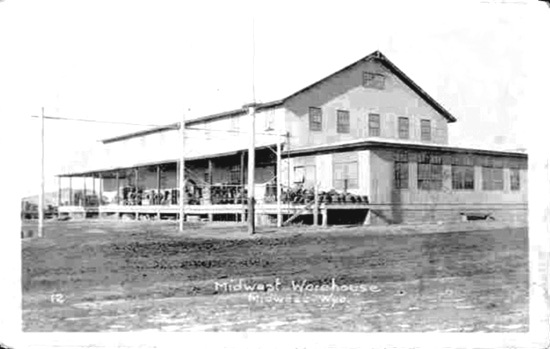 Midwest Warehouse, approx. 1930. During Prohibition, northern Natrona County developed a reputation for being somewhat lax in the enforcement of the liquor laws. Indeed, however, as pointed out by Professor Larson, Larson 2nd Edition revised, pp. 439-443, with the fines being regarded merely as a source of revenue and a cost of doing business. Indeed, however, public officials may have taken enforcement lightly, when the officials themselves may have been known to imbibe. Professor Larson cites, as an example, Judge T. Blake Kennedy's complaint that he had loaned the state prohibition commissioner two quarts of gin for a party, but it had not been returned. The judge concluded, "If he could replace it, it seemed to me that he was getting liquor from an illegal source." It may, however, be questioned as to where the judge got the gin. 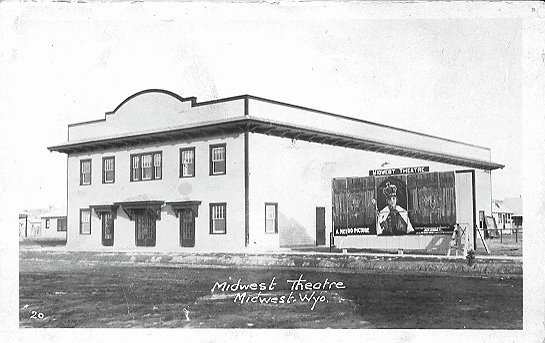 Midwest Theatre, Midwest, Wyo., 1920's The theatre was torn down in 1960. In Natrona County, similar instances relatling to violation of the Prohibition laws were found. Judge Volney Jean Tidball described in colorful style one incident involving Byron J. Powers where the laws against moonshining were enforced: Enforcement of the prohibition laws had an unintended impact on sporting parlors. The proprietress of one such establishment observed. "You can't run a sporting house on crick water."
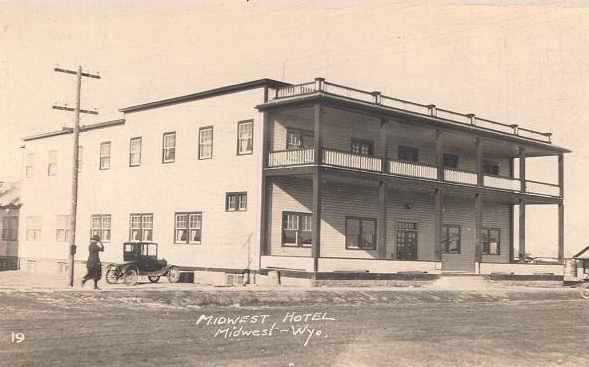 Midwest Hotel, 1920's The question might be posed as to just how close must W. C. Irving been to recognize Powers at 2:15 in the morning, out in the sand hills squatting next to the wheel, and yet not be able to effectuate an arrest? We may now have an answer. Willian C. Irving later became state law enforcement commissioner. In 1930, Irving was convicted in federal court of conspiracy to violate national prohibition laws.
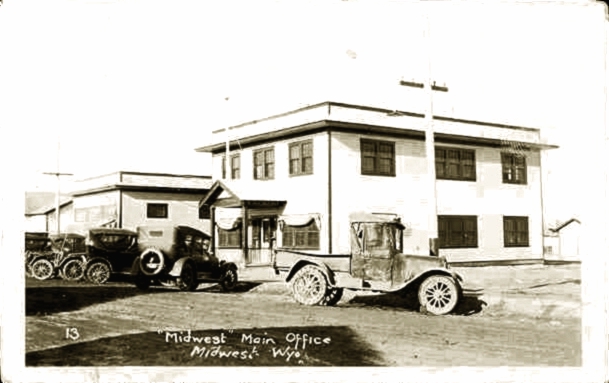 Midwest Oil Company Office, Midwest, Wyoming, approx. 1930. Another Natrona County defendant was caught with 600 gallons of illegal hooch and defended on the basis that it was "sacrificial wine." The judge asked incredulously, "600 gallons of sacrificial wine?" To which the defendant replied, "Well, I ship it to Rock Springs, Cheyenne and Sheridan." The Defendant was fined $100 and his still was confiscated. As to Rock Springs, it was unlikely that there was a shortage of "sacrificial" wine. Rock Springs was the center of Wyoming's wine industry. During the fall, as many as 100 freight car loads of grapes would be parked on the North Front Street siding awaiting the consignees to claim the grapes. The principal Rock Springs varietal wine was "dago red." In Rock Springs, Mike Perko, would normally fill some of the need. Unfortunately, he purchased three tons of bad grapes from the Rock Springs Commerical Co. When he failed to pay for all of the grapes plus 4 barrels, the Commerical Company sued. He defended on the basis of breach of warranty. He argued that the company "warranted the [grapes] to be fit and proper for making wine, and intoxicating liquor, prohibited by the laws of the state of Wyoming and the laws of the United States;" that the grapes were, instead, "musty, damp, and green, and that they did not make wine, but vinegar, and that said grapes when received were in a spoiled condition and unfit for use in the making of wine." He lost in the District Court and on appeal in the Wyoming Supreme Court. See Perko v. Rock Springs Commercial Co., 37 Wyo. 98, 259 P 250 (1927).
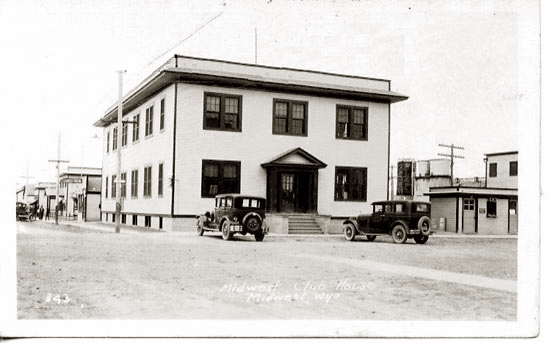 Midwest Clubhouse, approx. 1930 In Midwest and Edgerton, the story is still told of "Rippy Joe" Parsons, a local moonshiner. In those days, the Knighten dairy would deliver milk by wagon and ladle it out from the milk cans into the customers' own containers. Rippy Joe, observing Ina Knighten delivering the milk, adopted the same system, driving down the street in the wagon and ladling out the booze for his customers. Rippy Joe was also noted for being somewhat parsimonious, collecting wool from barbed wire fences and saving it in a gunny sack.
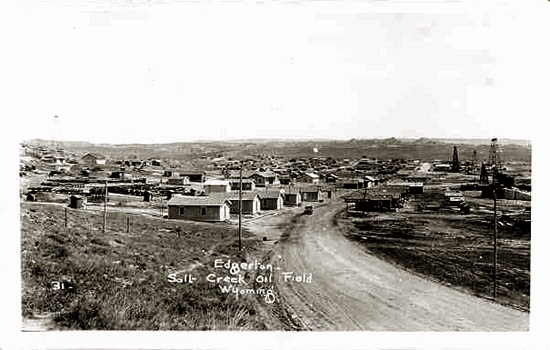 Edgerton, approx. 1930. Edgerton is located approximately one mile from Midwest. Edgerton was allegedly named as a result of being on the edge of the Salt Creek Field. Another possibility is that it took its name from early rancher Frank Edgerton.
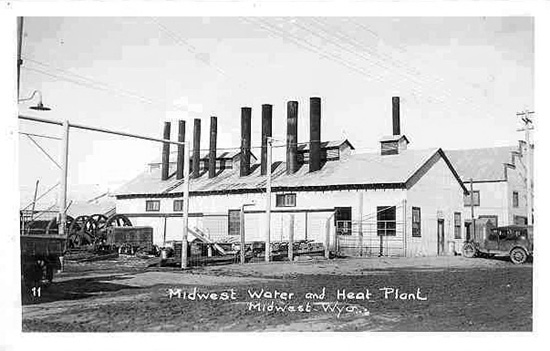 Midwest Waterplant, approx. 1930.
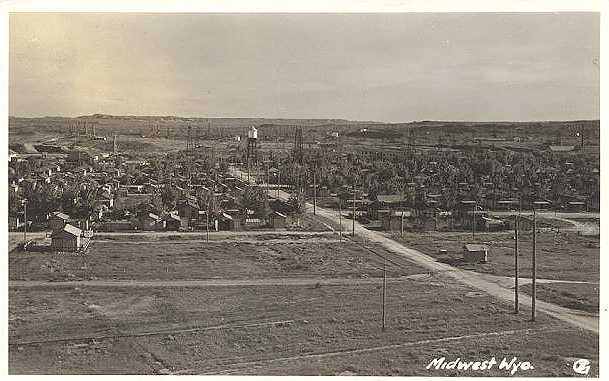 Midwest, undated Music this page: Whiskey in the Jar. Next page: Salt Creek, Teapot Dome |

